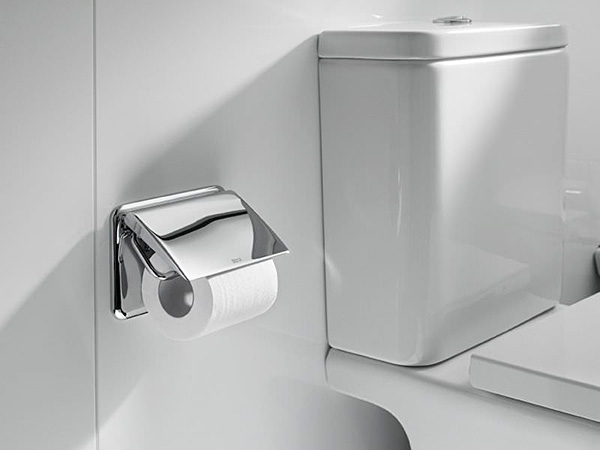Constipation may seem like a trivial thing, but research and reality showed otherwise. This little “inconvenience”, once installed, can create big health problems, one of the most feared complications being colorectal cancer.
What is constipation?
Constipation is a symptom that is characterized by reduced frequency and difficulty in evacuation of faeces. Typically, adults have between 5-21 stools a week. When frequency drops below the lower threshold, the diagnosis is constipation.
Most people have two bowel movements a day, in the morning and evening. In the case of only one stool a day, many are considered constipated, and therefore recurring to self-administer laxatives – which is all wrong.
What causes constipation?
The most common cause of constipation is the duty failure represented by proper bowel function. To understand how constipation may occur, we need to know the roles fulfilled by the large intestine:
- It removes some of the water from the body in the faeces
- Store faeces
- Promotes their elimination by muscle contractions in the bowel wall
Constipation can occur when:
- When the colon absorbs more water than it should, leading to the formation of consistent hard stools that are difficult to remove;
- When the contractions of the colon are not effective, and the feces aren’t pushed along the large intestine, thus being unable to be eliminated;
- When the subject can not eliminate feces in cases of imperforate anus (congenital), bowel obstruction in the path or in the anal sphincter.
Mistakes regarding correct food can cause constipation. Of these, the most common are:
– Consuming inadequate amounts of fluids: it is recommended to consume 2 liters of fluid daily. Fluids have the role of giving volume, but also to increase fluidity inside the colon.
– A diet low in dietary fiber: fibers are designed to prevent strong consistency of stools. Fibers are found in fruits, vegetables and grains.
Besides the reasons listed above, other factors contributes the risk factors:
- Ignoring the need to defecate: this is called habitual constipation;
- Weight loss diets because fiber intake is decreased;
- Lack of exercise slowing down bowel activity;
- Pregnancy: constipation during pregnancy is now a trend;
- Overuse of laxatives: can have the opposite effect, causing constipation.
Signs announcing the existence of constipation may be different from one patient to another:
- Reduced frequency of normal bowel movement;
- Disposal of small quantities of feces than normal;
- Lack of consistency that trigger defecation;
- Difficulty of evacuation;
- Sensation of incomplete emptying;
- Discomfort in the lower part of the abdomen, accompanied by headache and nausea.
Constipation is a symptom but may be associated with other diseases.
Many diseases have constipation as a symptom:
- Tumors of the colon;
- Anal fissures;
- Stenosis;
- Diverticulosis;
- Anxiety and depression;
- Hypothyroidism, hyperthyroidism;
- Hypercalcemia;
- Pheochromocytoma;
- Parkinson syndrome;
- Hirschsprung’s disease emphysema;
- Tuberculosis;
- Stroke;
- Irritable bowel syndrome.
The diagnosis of constipation is established when the patient has fewer than five stools per week. For the diagnosis, usually there are not required special investigations but only a simple consultation. The doctor can recommend some investigation when constipation is accompanied by other symptoms (pain, weight loss, blood in the stool), or where alternating between constipation and diarrhea exists:
Colonoscopy allows visualization of the colon, using a video camera attached to a flexible cable, this way, any present lesions or tumors can be revealed.
– Evaluation of the colorectal transit time: is done in patients with chronic constipation, comprising administering a radiopaque substance, whose route will be followed with radiographs every 24 h, until complete removal.
– Barium enema – allows observation of the colon and detect possible obstructive lesions or mucosal changes.
Constipation becomes a silent enemy once other complications installs:
- Colon cancer;
- Hemorrhoids;
- Fecal incontinence;
- Stercoral ulcer;
- Megacolon;
- Encopresis (underwear);
- Bloating.
How constipation is treated?
Ways of treatment consists of dietary, psychological, medical (laxative) and surgical means.
Diet: Will be rich in dietary fiber, vegetables, salads, fruits. You should consume at least 2 liters of fluid daily. Foods high in fiber and cellulose as; green beans, peas, zucchini, carrots, celery, potatoes, lettuce, onions, cucumbers, tomatoes, leeks, spinach, grapes, oranges, apples, pears, bananas, plums, figs, graham bread, honey and buttermilk.
Try to replace the consumption of pastries with vegetables and raw fruits, and replace sodas with fruit juices – much more beneficial for the entire body.
Psychological therapy: Through this therapy, the patient is taught to adopt a relaxing attitude and will try to reduce anxiety, mental tension and the correlated stress about the symptoms.
Laxative therapy: Is used for limited periods of time and only at the physician advice. It is important to not use laxatives in excess.
Surgical therapy is reserved for patients with Hirschsprung’s or megacolon diseases.
Changing lifestyle is sometimes the best treatment. If this method fails too, an urgent visit to the doctor is required.


